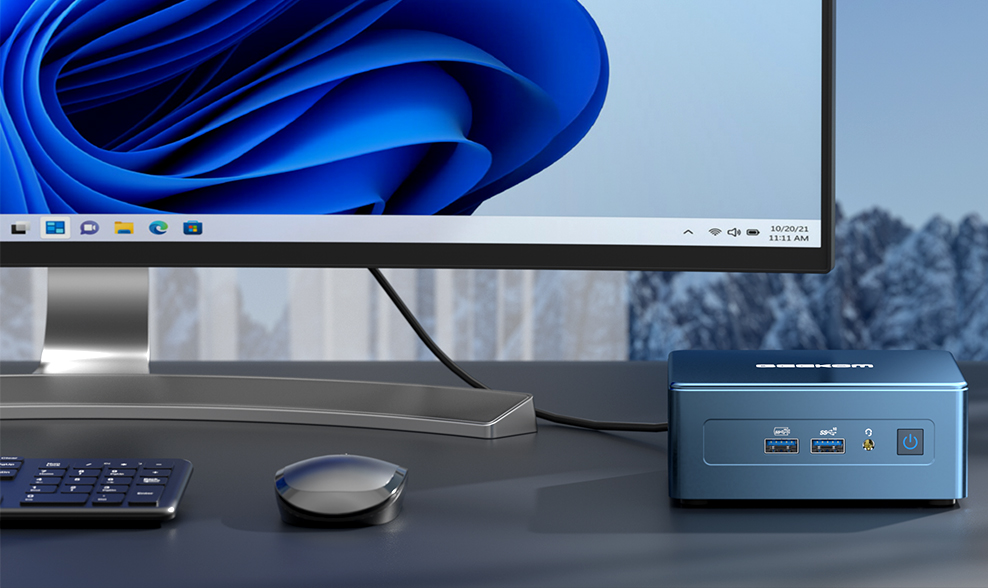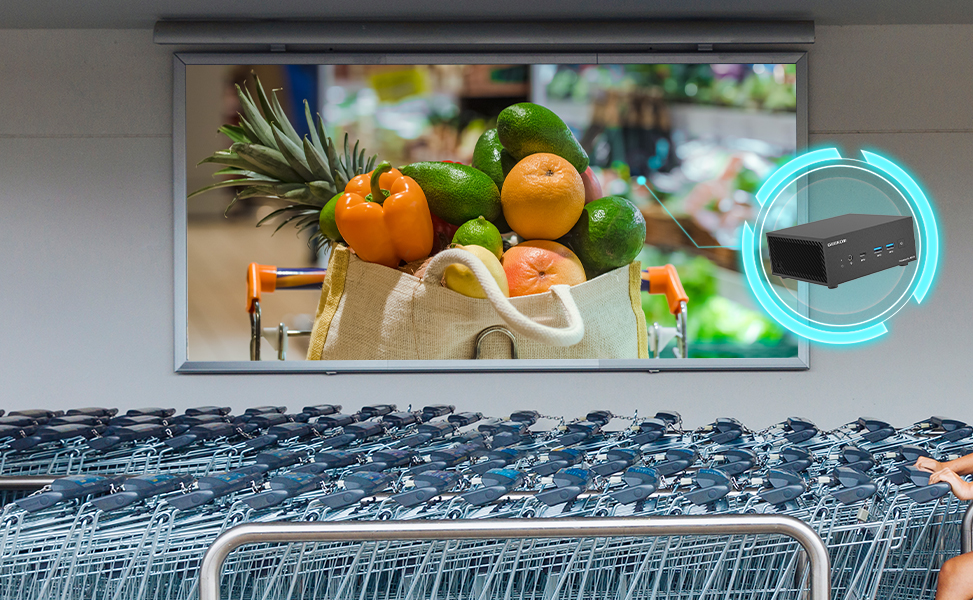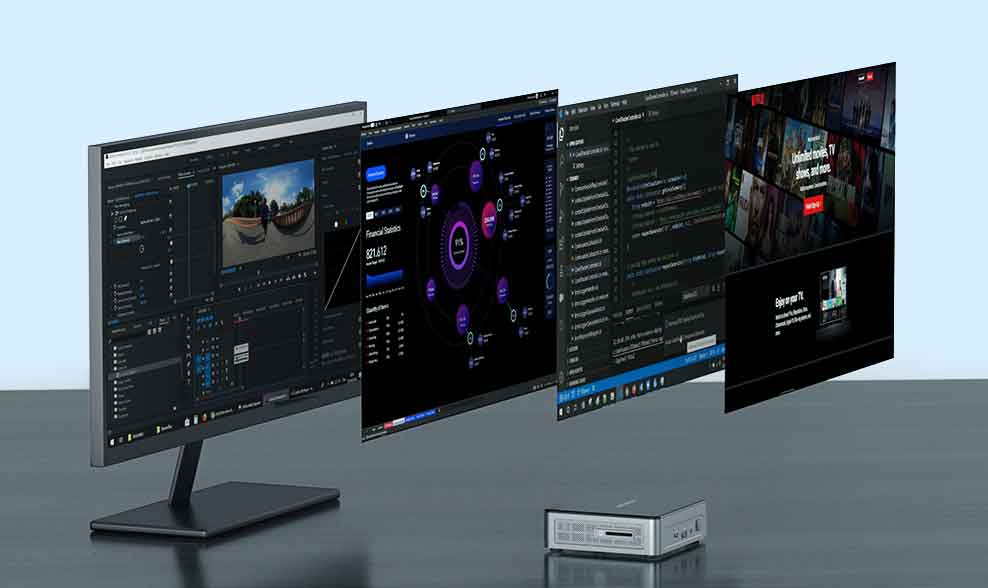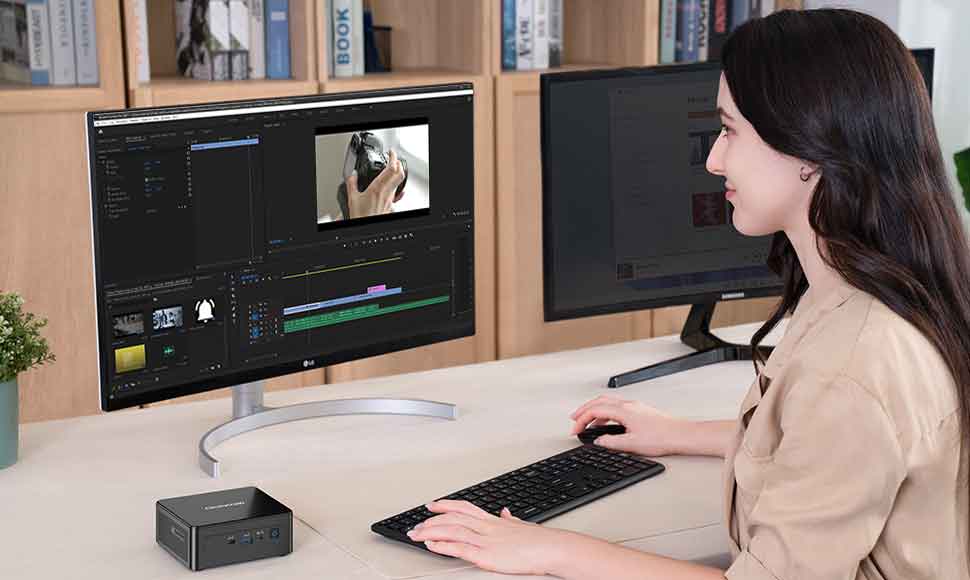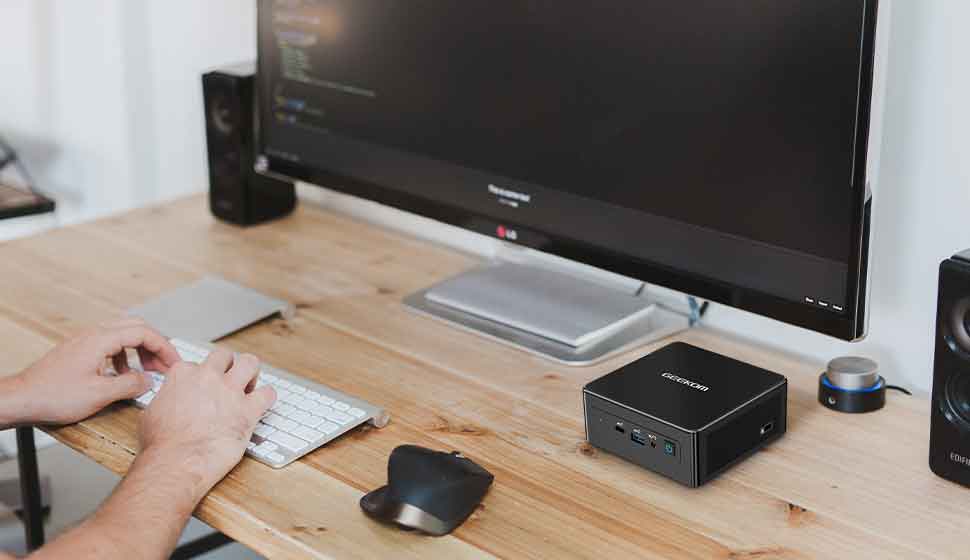Since the first desktop computers appeared in the 1980s, they have enjoyed great popularity. One driver of this success was modularity. Hard drives, CPU, RAM and other things could be exchanged for more powerful models. Due to ever smaller production technology, there are now a variety of different computer models and designs, such as the thin client or the all-in-one PC. In this guide we cover the special features of Mini PCs and show you how to choose the best Mini PC.
What is a Mini PC?
There is no exact definition of what a Mini PC is. In colloquial terms, this is more likely to mean a PC that has a motherboard size smaller than ATX. Other features include a design that is as compact as possible. The volume of the tower is between one and thirty liters. Many manufacturers offer a large selection of these.
The agony of choice
There are now many manufacturers of such small computers. For example, Apple has now released the eighth generation of the Mac Mini. This PC does not require an optical drive. The housing of the computer, which weighs just 1.2 kilograms, was made entirely of aluminum. In terms of hardware, Intel Core i models are used as the CPU. The manufacturer also relies on Intel as the GPU. OS X is installed as the operating system, although Windows can also be installed in dual boot. However, Mac Minis are quite expensive.
Another manufacturer is Intel with its NUC series. This manufacturer also uses passive cooling, so the noise is extremely low. Of course, Intel relies on its own hardware. Intel Core I processors are used, which are combined with an Intel GPU. Windows 10 or 11 is used as the operating system.
Geekom is still a new manufacturer of desktop mini PCs. The Geekom Mini IT8 relies on high-quality hardware from Intel and delivers it mini pc with Windows 11 Pro out of. The cube housing appears to be of extremely high quality. The PC also impresses with its connectivity. There are ports for USB-C, SD card readers, HDMI ports and DisplayPort. Thanks to the VESA mount, the computer can also be mounted particularly easily. So if you're looking for an Office mini PC, you should take a look there.
Other manufacturers include Beelink with the Sei8 or Minisforum with the EliteMini TH50. These are compact mini office PCs with powerful features. Both manufacturers offer many different models at affordable prices.
Stress test etc. Why is this so important?
In addition to the hardware, the software also plays a particularly important role. On the one hand, it is important to have an up-to-date operating system, which is also regularly provided with updates. Nobody wants to buy a new computer whose hardware and software is already completely outdated. This is even more true with desktop mini PCs, as not just one computer is ordered, but ten or more. Such computers are also exposed to different stresses than your home gaming computer.
Therefore, the operating system is precisely tailored to the hardware and the entire mini pc office is subjected to a stress test. This places the computer's main processor under heavy strain. For this purpose, the CPU runs at maximum speed and every core is used. This test takes about an hour. The temperature of the CPU is measured and its behavior is analyzed. If the test is satisfactory, the computer can be sold.
The advantages and disadvantages of the compact design
This type of computer offers various advantages and disadvantages. Such models boast low purchase costs and low power consumption. Such models are usually fanless, so noises don't bother you either. A big advantage of these PCs is the small space they require while also being lightweight.
In terms of performance, you don't have to sacrifice much. Although they are not large gaming computers, these computers still have good performance. WLAN and Bluetooth are usually already integrated. The disadvantages, however, are partly due to the compact design. These computers have little expandability. In addition, this type of computer sometimes lacks a DVD drive.
Mini PC versus thin client
Both terms are sometimes used synonymously, but both are separate groups. While the small computers can also be used as a thin client, the other way around is not possible. Thin clients are also based on compact shapes, but only have a fraction of the performance. Otherwise, thin clients are also fanless and do not require optical drives. In addition, they do not have as much connectivity as a small computer.
The advantage of thin clients is the even lower power consumption, with even fewer upgrade options. With thin clients, only the RAM and hard drive can be changed. The hard drive consists of a compact CF card with only a small amount of memory. In addition, the CPU is also very compact and is usually designed as a single core CPU.
However, thin clients do not require any powerful hardware because they are based on the client-server principle. The operating system and all important programs are located on a powerful server. The thin clients, on the other hand, connect to the server and mirror the server's operating system. All entries made are transmitted from the client to the server. The advantage of such a solution is the low maintenance effort, as only the server needs to be maintained. However, if you need greater flexibility, the compact computer is preferable.
Conclusion
There are a variety of manufacturers of small PCs. Which one is the right choice also depends on the user. If the user wants to have an exclusive PC, they should take the Apple Mac Mini. If you don't care, you have free rein. While Intel is already a long-standing manufacturer with its NUC series where you are guaranteed not to go wrong, other manufacturers also have their advantages.
Geekom, for example, is still quite young, but relies on the latest technology and has high quality standards. The whole thing is then combined with a reasonable price. The other manufacturers such as Beelink or Minisforum also have their advantages, as they have a particularly large selection of cheap mini PCs.
In principle it can therefore be stated. If you are looking for a computer for office work and simple applications, a mini computer is a good choice. However, if you want to use your computer to play complex games or edit images, you should choose a classic desktop PC.

